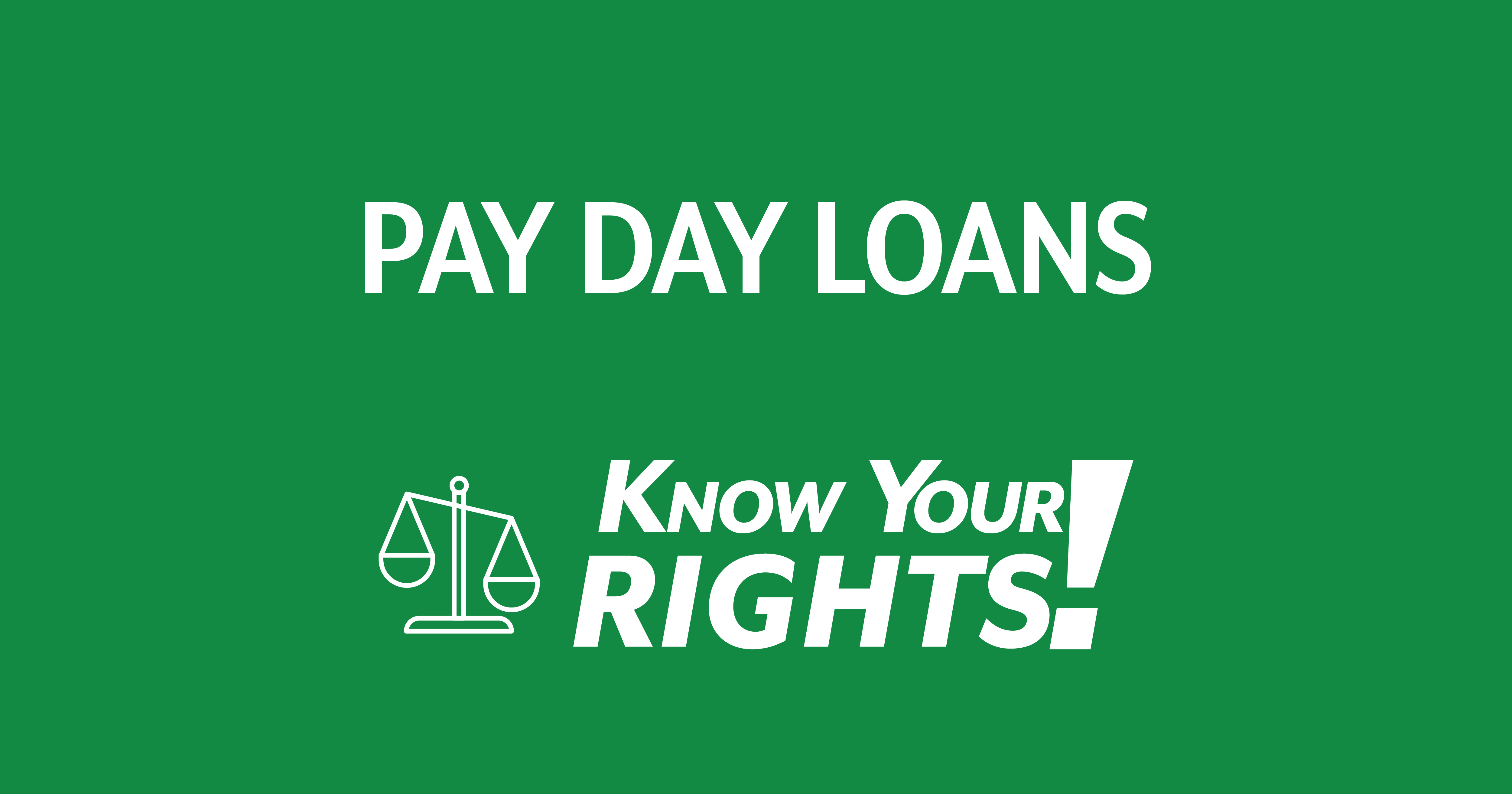Know Your Rights: Pay Day Loans
Posted on: October 13, 2021
The information provided on this post does not, and is not intended to, represent legal advice. All information available on this site is for general informational purposes only. If you need legal help, you should contact a lawyer. You may be eligible for our free legal services and can apply by calling our Covid Legal Hotline at 1-844-244-7871 or applying online here.
What is a Pay Day Loan?
A “pay day loan” is a name for a loan that must be repaid very quickly, usually within weeks.
This kind of loan goes by many names.
These loans may be called “pay day” loans, “cash advance” loans, “check advance” loans, “deferred deposit” check loans, or “deferred payment” loans.
Here is how these short term loans work.
The loan is paid back from your upcoming paycheck.
You usually let the lender to take the loan amount out of your bank account when it is time to repay the loan. This is often 14 days after the loan.
Under Louisiana law, the most you can borrow $350.
The length of the loan is up to 30 days.
Pay day loans will not help with long-term debts.
Instead, pay day loans often turn an immediate problem into a n even more expensive long-term problem.
What is the cost of a Pay Day loan?
Louisiana law allows you to be charged $20 for every $100 you borrow.
The lender can also charge you fees. These fees can include a $10 documentation fee. The fees charged can be at most $55 when you borrow $220 or more.
What is the actual interest rate for a Pay Day loan?
The APR (Annual Percentage Rate) for these loans in Louisiana is up to 391% on a loan of $300. APRs for most credit cards between 12% and 30%.
What is APR?
APR is the interest rate showing the true and total cost of the loan. It includes the interest rate plus any upfront costs and fees that you are charged by the lender when you borrow the money.
Can I refinance my current Pay Day loan?
Yes and No. Under Louisiana law, only if you pay the fees owed and pay back at least 25% of the borrowed amount, you can refinance the remaining 75% of principal.
For example:
You borrowed $300, and you were charged $55 in fees.
You must pay back $55 in fees plus $75 (which is 25% of the $300 you borrowed) to refinance the remaining $225 owed.
You will be charged additional fees and interest for the $225 you refinanced.
What happens if I cannot refinance or repay my current Pay Day loan?
The law allows you to make a “partial payment” of $50 or more.
If you do not pay by the due date, you will be in default.
What happens if I default on a Pay Day loan?
The lender can then charge you up to 36% per year interest for the first year.
After the first year the lender can charge 18% interest each year after until the full amount owed is paid back.
If you are sued the lender can charge you attorney fees and court costs.
Can the Payday lender charge me with a crime if I do not pay back my Pay Day loan?
Only police, sheriffs, or a District Attorney can charge you with a crime.
A payday lender may threaten criminal charges if you do not pay.
You do owe a debt to the payday lender.
But in Louisiana it is rare for the police, sheriff, or district attorney to charge someone with a crime for not paying back this kind of loan.
I gave the lender a personal check and it bounced.
The lender can now charge you a $25 NSF (“Not Sufficient Funds”) fee and any fees the lender charges for processing the bad check.
More information can be found at: https://www.consumerfinance.gov/consumer-tools/payday-loans/
